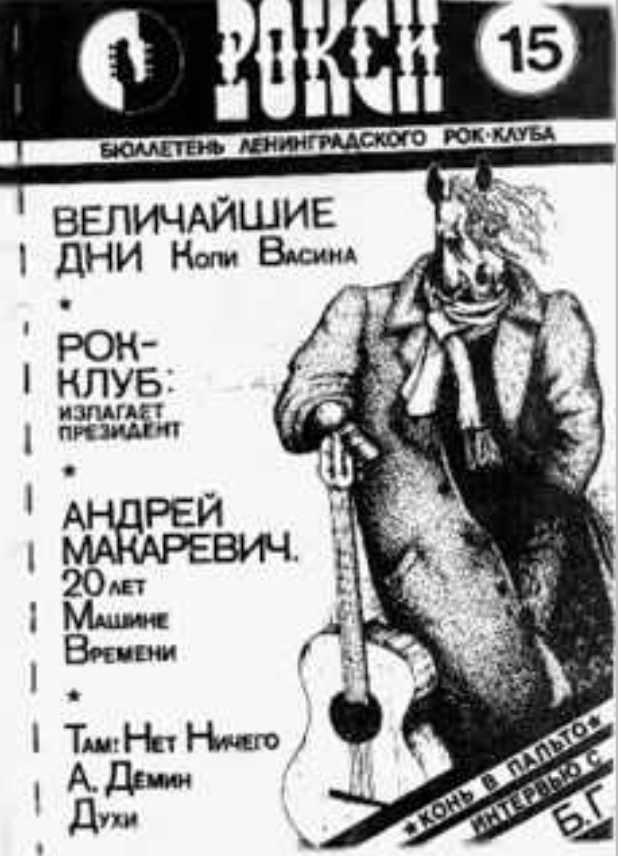Last issue of the samizdat “Roksi” magazine, 1990

From the 1970s through the 1990s, an industry of privately circulated underground music journalism—part of a larger corpus of samizdat or self-published literature and other media—flourished throughout the former Soviet Union. The present artifact is the final print issue of the Leningrad-based samizdat rock journal Roksi, founded in 1977 by members of the rock band Akvarium and Gennady Zaitsev (1954-), president of the Leningrad Rock Club (LRC) from 1981 to 1982. Considered to be the first rock publication in the Soviet Union, and accordingly subject to raids by the KGB, Roksi eventually became the official newsletter of the LRC, and thus legitimized by the state apparatus. The publication was highly influential and spawned dozens of samizdat rock magazines across the USSR. These sought, stylistically and ideologically, to expand upon Roksi’s model, which by the 1990s was deemed by competing rock-journalism editors to be overly conservative both scope and content.
The magazine’s structure follows a standard format that begins with letters from the editor, then continues to concert reviews, interviews with musicians, album reviews, works of fiction, travel journalism, and reports regarding rock-club governance. Issue 15 reflects the sociopolitical and economic changes driving the late-Soviet period. The letter to the editor mentions grappling with a profit-driven model of music production and promotion, while veteran rock stars Andrei Makarevich (1953-) of Mashina vremeni (Time Machine) and Boris Grebenshchikov (1953-) of Akvarium discuss their respective US tours and the experiences of working and living in a heretofore unattainable America. The issue lacks the journal’s characteristic cohesion and reads as symptomatic of broader shifts underway within the USSR—which, ultimately, pushed the publication out of print.